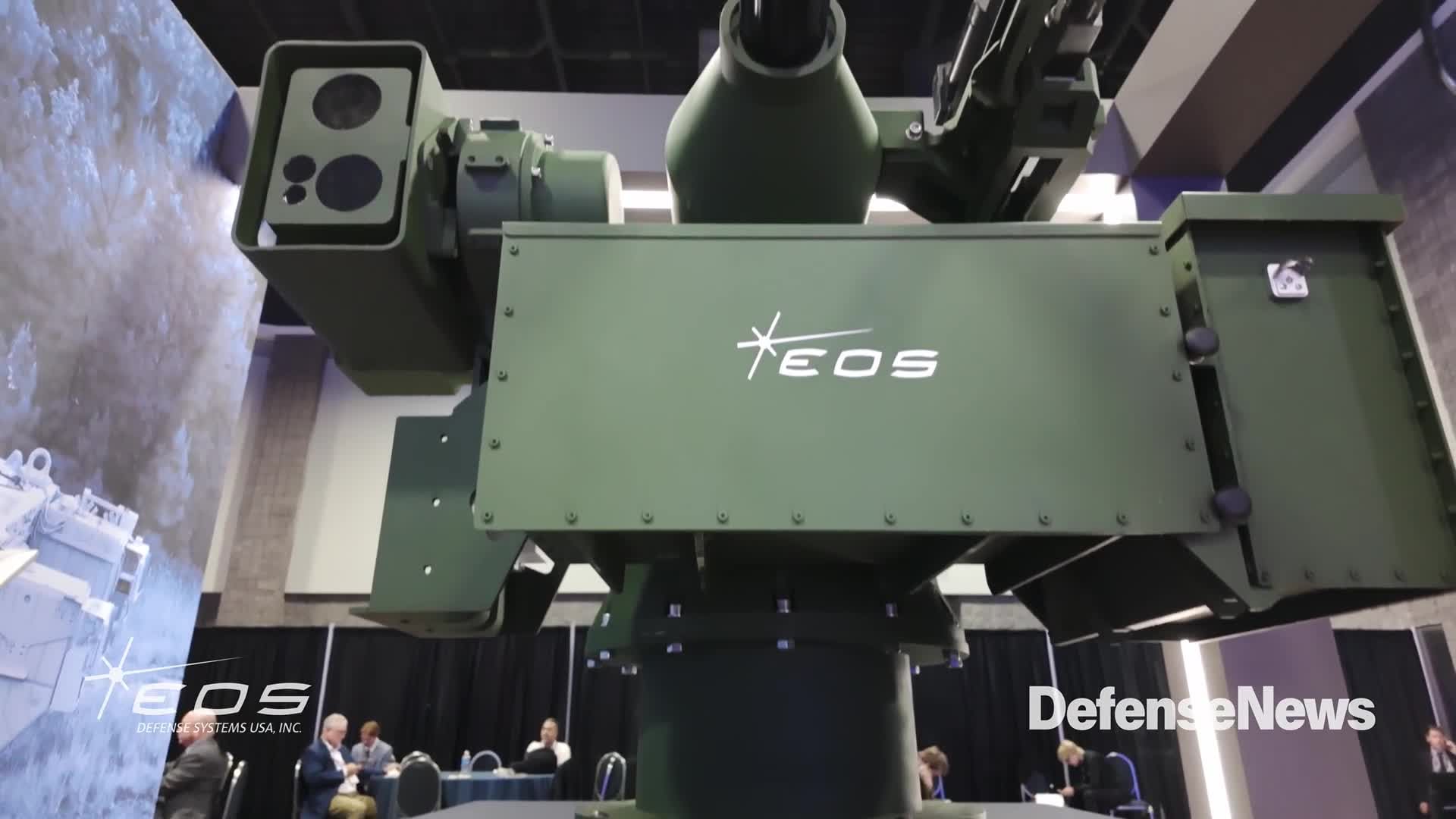MILAN, Italy — South Africa’s Paramount Group is gearing up production of composite blades for Mi-type helicopters with the establishment of a production facility in the United Arab Emirates as the defense company seeks orders from African operators of the aircraft in need of maintenance and configuration upgrades.
Last month, Paramount said it signed a strategic partnership agreement with UAE-based AAL Group to locally manufacture main and tail rotor composite blades for the helicopters. The Emirati entity has provided a full-range of maintenance and repair services for the Mi family of rotary-wing aircraft for more than two decades
“Our activities with AAL Group in the UAE will include but not be limited to the management of an advanced manufacturing plant, an assembly line, and maintenance, repair and operations facilities, servicing and upgrading fleets of helicopters for our African partners,” Steve Griessel, CEO of Paramount, told Defense News.
RELATED

There are more than 23 operators of Mi-type helicopters across the African continent, with Togo being the most recent to receive new deliveries of two Mi-17 transport aircraft in December.
These aircraft are often equipped with metallic blades, which undergo significant stress during intense operations. This can increase the types of damage to which they’re exposed, making them prone to faster erosion. A traditional metal helicopter blade is made with titanium alloy, of which Russia is one of the largest exporters in the world. Financial services company Citigroup recently warned the export of important metals could be next on Moscow’s list of restricted natural resources in response to Western sanctions.
A high percentage of Soviet-era helicopters among African fleets are unserviceable, meaning they’re either grounded for long periods of time or completely retired. This was in part due to customers’ inability to maintain their fleets — an issue likely aggravated by Ukraine war, which itself has impacted global supply chains and deliveries. In addition, several nations in Africa face budgetary constraints.
Paramount is offering composite blades for Mi-17s and Mi-24s, a fully interchangeable replacement for the original metallic ones, which offer logistical and operational benefits.
“Metal blades have a limit of around 4,000 hours of operational activity, whereas composite is almost infinite and closer to 20,000. Generally most aircraft have limits based on time and hours operated. The time limit — that is, the number of useful working years — would depend on storage, operational conditions and so on, but composite blades would far outlast metal ones,” the head of Paramount’s aerospace systems unit, Brian Greyling, told Defense News.
This alternative further allows for the replacement of individual blades rather than an entire set. Although they are more expensive, the company said that the longer life expectancy they provide make the overall cost of operations significantly cheaper. Composite blades become financially viable after 200 flight hours per aircraft.
Whereas African customers may have turned to Russian manufacturers for upgrades, maintenance, repairs and overhauls, the UAE-based installations may give a significant advantage to Paramount in terms of seizing new business opportunities.
Paramount has experience in providing maintenance, repair and overhaul services, having modernized Algeria’s Mi-24s to the SuperHind standard. Many systems have found homes among Middle Eastern customers over the past few years. While Africa and the Middle East both face distinct challenges and have varying defense budgets, they also share intriguing similarities and demands, Griessel said.
“For example, there is a shared requirement for interoperability; the ready utilization of our land vehicles in border patrol, policing and peacekeeping; and military support operations,” he explained. “The need for the ability for technologies and mission systems to be rapidly substituted from reconnaissance to engagement scenarios is another one.”
Elisabeth Gosselin-Malo is a Europe correspondent for Defense News. She covers a wide range of topics related to military procurement and international security, and specializes in reporting on the aviation sector. She is based in Milan, Italy.








